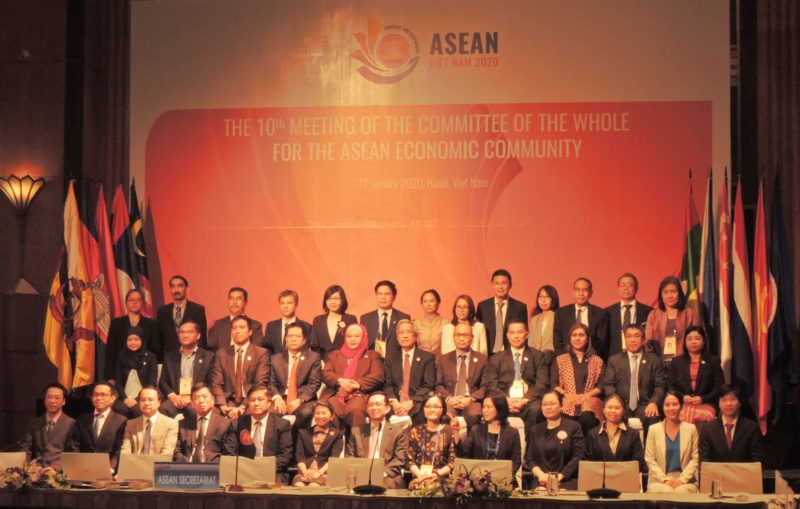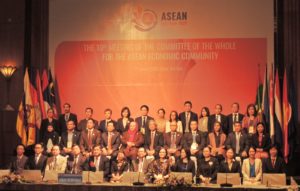

Three more types of trade documents—electronic phytosanitary certificate, electronic animal health certificate, and electronic Association of Southeast Asian Nations (ASEAN) customs declaration document—may soon be exchanged via the ASEAN Single Window (ASW), according a Department of Finance (DOF) official.
The new development was reported by the ASEAN Steering Committee during a recent Committee of the Whole meeting in Hanoi, Vietnam, according to DOF undersecretary Gil Beltran.
The three new documents will soon join the ASEAN Trade in Goods Agreement (ATIGA) electronic Form D (certificate of origin) that is now being submitted via the ASW. The Philippines joined live operations of the ASW on December 30, 2019, exchanging ATIGA electronic Form D with Indonesia and Malaysia.
READ: PH links to ASEAN Single Window’s live operations
Beltran said the Bureau of Customs (BOC), along with its Export Coordination Division (ECD) and export divisions in three pilot ports, is now issuing the electronic Certificate of Origin (eCO) using the country’s National Single Window (NSW) dubbed TradeNet (tradenet.gov.ph).
These pilot ports are the Port of Manila, Manila International Container Port, and Ninoy Aquino International Airport.
BOC last year released Customs Memorandum Order (CMO) 15-2019 that provides the guidelines for the application, submission, and processing of the ASEAN eCO using TradeNet, the government’s digital trading platform that aims to reduce the processing time and number of transactions for import and export clearances.
READ: BOC moves forward with TradeNet, releases operational rules
Under the ATIGA, the CO or Form D, which also serves as an exporter’s declaration, has to be submitted to secure preferential tariffs, which are tariff schedules giving one or more nations lower rates or other advantages over other countries.
In his report to Finance Secretary Carlos Dominguez III, Beltran said, “The ASW Steering Committee will also develop a roadmap to enable dialogue partners to join and exchange trade documents online with the ten (10) ASEAN countries. It will also develop guidelines to handle cancellation or revision of documents exchanged and set Business Process Specifications (BPS) using the Common Header.”
He added the ASEAN Business Advisory Council has agreed to help disseminate information on these activities to the private sector.
The ASW is the regional initiative that aims to speed up cargo clearance and promote regional economic integration by enabling the electronic exchange of border documents among the ASEAN’s 10 member states.
Beltran said going live on the ASW “lowers communication costs to as low as 10 percent of the original amount and encourages small enterprises to take advantage of preferential tariffs under ATIGA.”
Beltran earlier said that Indonesia, Malaysia, Singapore, Thailand, Vietnam, and Brunei were already exchanging over 460,000 customs and other trade-related documents a year at only 10% of the usual cost to traders.
Like the Philippines, also scheduled to join the ASW before 2019 ended were Cambodia, Myanmar, and Laos.
The Philippines aims to have all 76 trade regulatory government agencies across 18 government departments eventually become fully interconnected to TradeNet, a development expected to simplify import and export documentary processes covering an initial 7,400 regulated products.




